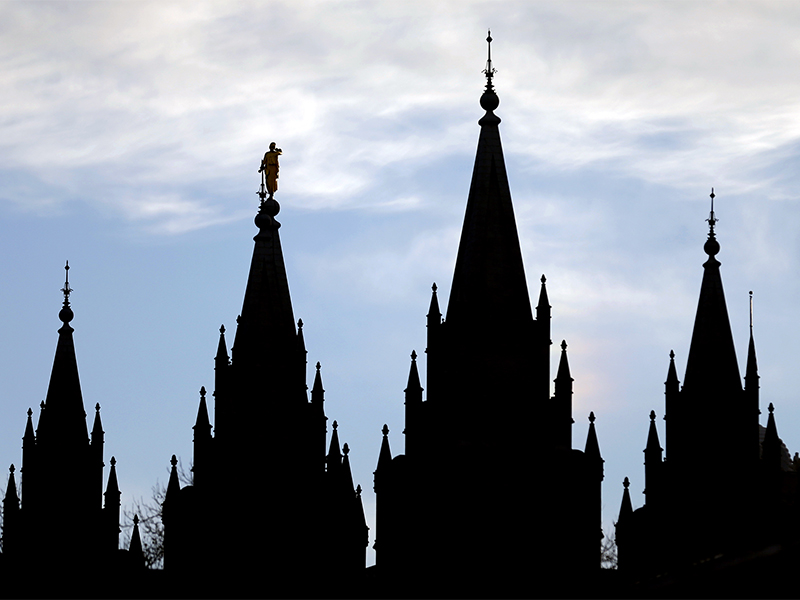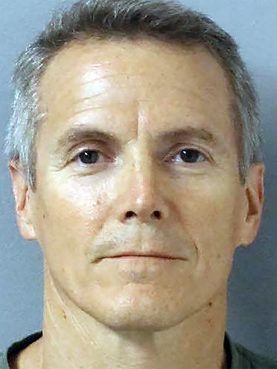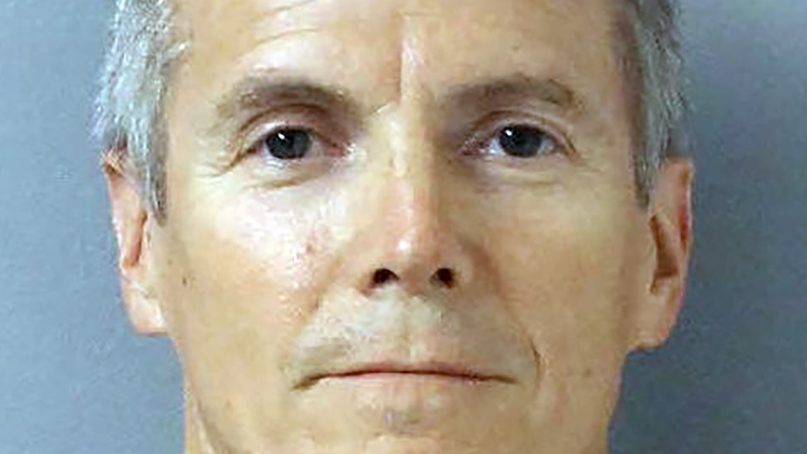
The angel Moroni statue, silhouetted against the sky, sits atop the Salt Lake Temple, at Temple Square, on Jan. 3, 2018, in Salt Lake City. (AP Photo/Rick Bowmer)
(RNS) — The Church of Jesus Christ of Latter-day Saints has removed a Utah church official after he was charged with taking photos of a woman undressing in a Tennessee clothing store.
“This type of behavior is unacceptable and cannot be tolerated from any Church member,” Eric Hawkins, a spokesman for The Church of Jesus Christ of Latter-day Saints, told Religion News Service in an email. “When local leaders learned of the arrest and charges, he was immediately removed from all responsibilities.”
On Aug. 13, according to an affidavit, Steven Murdock, 55, a resident of Holladay, Utah, presented himself as a store employee and guided a woman into a dressing room at an H&M at Nashville’s Opry Mills Mall.

Steven Murdock, a Utah man who serves as a local leader in the Church of Jesus Christ of Latter-day Saints, is accused of illegally photographing a woman in Tennessee in a mall dressing room. Authorities say Murdock, of Salt Lake City, is free on $1,000 bond with a Sept. 6, 2019, court date. (Metropolitan Nashville Police Department via AP)
The 23-year-old woman said she noticed a phone recording her from above the corner of her stall and exited to confront Murdock, who the woman said emerged from the next stall over and began deleting photos of her from the phone. She also told police that his wife, Amy Murdock, “approached her and asked her to settle this peacefully without getting police involved,” the affidavit noted.
Murdock, who had been vacationing in Nashville, was arrested on a misdemeanor charge of unlawful photography. He was released on a $1,000 bond after a night in jail and is expected to appear in court Sept. 6 in Nashville.
Despite his title of “high councilman,” Murdock was far from a prominent figure in the church, as some media reports have suggested.
“The references to him as a ‘high-ranking’ church leader are confusing, because that’s not the case,” explained Matthew Bowman, chairman of the Mormon studies program at Claremont Graduate University. “His position was only that of a midlevel local leader.”
Murdock had spent several years serving as a bishop at his congregation in Holladay, a Salt Lake City suburb. This position, as a lay leader of a single local congregation, or ward, was unpaid.
Later selected to become a stake high councilman, Murdock became one of 12 high priests on a high council for one of Utah’s nearly 600 stakes, or groups of several wards.
“High councilmen, which is what he was, are the second layer of leadership in a stake” below the stake presidency, said Bowman, who compared a stake to a Catholic diocese. “That’s far from being an actual high-up leader in the church.”
Murdock did not receive a salary or have any formal religious education and likely worked a separate day job, Bowman said.
While some media reports noted that he was an ordained high priest in the church, all councilmen are “high priests” and all Mormon men are ordained to The Church of Jesus Christ of Latter-day Saints’ priesthood.
Councilmen are unpaid lay leaders — only the approximately 100 general authority leaders of the church are paid — and are responsible for supervising the activities of several wards and, occasionally, participating in disciplinary hearings that decide on excommunications.
Hawkins said Murdock may also have his “Church privileges restricted or may face the potential loss of Church membership.”
That decision will likely take place in the council he was once a part of, Bowman noted.
While felonies mandate excommunication, Bowman said, the stake’s leaders have the authority to decide whether to excommunicate a member over misdemeanors or to enact lesser disciplinary actions, just as disfellowshipping.
According to the handbook produced by the church’s general authority and followed by local authority, “sexual misconduct is grounds for excommunication, but that would be the call of local leaders,” he said. “I wouldn’t be shocked if it did happen, but I wouldn’t be shocked if it didn’t either.”
Last year, a bishop from Draper, Utah, was removed from his position after being charged with sex abuse.





